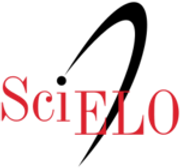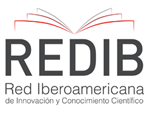Valoración técnico constructiva del conjunto ferroviario “Talleres de Bello”
DOI:
https://doi.org/10.21754/devenir.v10i20.1450Palabras clave:
Patrimonio, Ferrocarrilles, Ferrocarril de Antioquia, Bien de interés cultural, Valoración constructivaResumen
La construcción y el funcionamiento de ferrocarriles en Colombia fue uno de los hechos más significativos para el desarrollo económico, social y cultural del país en el siglo XIX. Este hito histórico tuvo lugar en el departamento de Antioquia, donde se materializó una línea férrea propia, mejorando las condiciones de movilidad a la vez que se construía, en diferentes lugares de su trazado, la infraestructura necesaria para su operación, como las estaciones y los talleres. Si bien para el Ministerio de Cultura de la Nación, las estaciones de los Ferrocarriles son bien de interés cultural y patrimonial de suma importancia para la nación, dicha declaratoria no incluye de manera directa los talleres donde se hacían los mantenimientos necesarios para el correcto funcionamiento de los ferrocarriles. La valoración técnico – constructiva, trata de analizar el conjunto “Talleres de Bello” desde una perspectiva más holística, es decir, desde los aspectos generales de su funcionamiento, y de las técnicas asociadas a las tipologías constructivas de los edificios que comprenden el conjunto ferroviario, en su estructura y cerramientos, tratando de revelar de alguna manera las técnicas constructivas de época y el impacto que representa para el estudio del patrimonio como movilizador de la innovación técnica y tecnológica en la arquitectura, la ingeniería y la construcción
Descargas
Citas
Área Metropolitana del Valle de Aburrá. (2010). Patrimonio urbanístico y arquitectónico del Valle de Aburrá (1ª ed.). http://www.metropol.gov.co/Planeacion/DocumentosAreaPlanificada/LIBRO_PATRIMONIO.pdf
Botero, L. J. (2015). La Facultad de Minas 1970-2012. Universidad Nacional de Colombia Sede Medellín.
Corporación Semiósfera. (15 de junio de 2018). Corporación Semiósfera. http://www.semiosfera.org.co/bello/geografia.htm
Giraldo, L. F. (2018). Modelado de edificios Talleres Bello. Auxiliar de investigación. Bello, Colombia.
Gómez, E. R. (2009). "Mulas de acero" un caso de mentalidad y tecnología en los talleres de Bello. Huellas de Ciudad, 75-83.
Jaramillo, G. (julio de 2012). La estación Medellín y la arquitectura republicana en Colombia. Iconofacto, 8(11), 96-116. https://revistas.upb.edu.co/index.php/iconofacto/article/view/2355/2098
Molina, L. F. (septiembre de 2016). Palacio Municipal de Medellín: Martín Rodríguez. Revista Credencial. http://www.revistacredencial.com/credencial/historia/temas/palacio-municipal-de-medellin-martin-rodriguez
Ochoa, S. V. (2012). Modelación de la erosión hídrica a escala de cuenca en la zona alta de la Quebrada La García, Municipio de Bello, Antioquia [Tesis de maestría, Universidad Nacional de Colombia Sede Medellín, Antioquia]. http://bdigital.unal.edu.co/9127/1/1020392544.2012.pdf
Pareja, C. E. (2004). Talleres del Ferrocarril en Bello, Patrimonio Cultural. Universidad Nacional de Colombia Sede Medellín, Antioquia.
Patiño, J. A. (2017). Plano general del conjunto ferroviario talleres de Bello [Documento de trabajo elaborado durante la ejecución del proyecto de investigación por auxiliar de investigación].
Semillero de investigación Patrimonio Industrial y Ferroviario, U. d. (Febrero de 2018). Conjunto ferroviario Talleres de Bello [Documento de trabajo elaborado durante la ejecución del proyecto de investigación por integrantes de la investigación].
Semillero de investigación Patrimonio Industrial y Ferroviario, U. d. (Junio de 2010). Conjunto ferroviario Talleres de Bello [Documento de trabajo elaborado durante la ejecución del proyecto de investigación por integrantes de la investigación].
Tamayo, H. (28 de marzo de 2018). La hierba, último huésped de los Talleres del Ferrocarril en Bello. El Tiempo. http://www.eltiempo.com/colombia/medellin/historia-de-los-talleres-del-ferrocarril-en-bello-antioquia-199080
Descargas
Publicado
Cómo citar
Número
Sección
Licencia
Derechos de autor 2023 Devenir - Revista de estudios sobre patrimonio edificado

Esta obra está bajo una licencia internacional Creative Commons Atribución 4.0.
Los artículos publicados por DEVENIR pueden ser compartidos a través de la licencia pública internacional Creative Commons: CC BY 4.0. Permisos lejos de este alcance pueden ser consultados a través del correo revistas@uni.edu.pe











